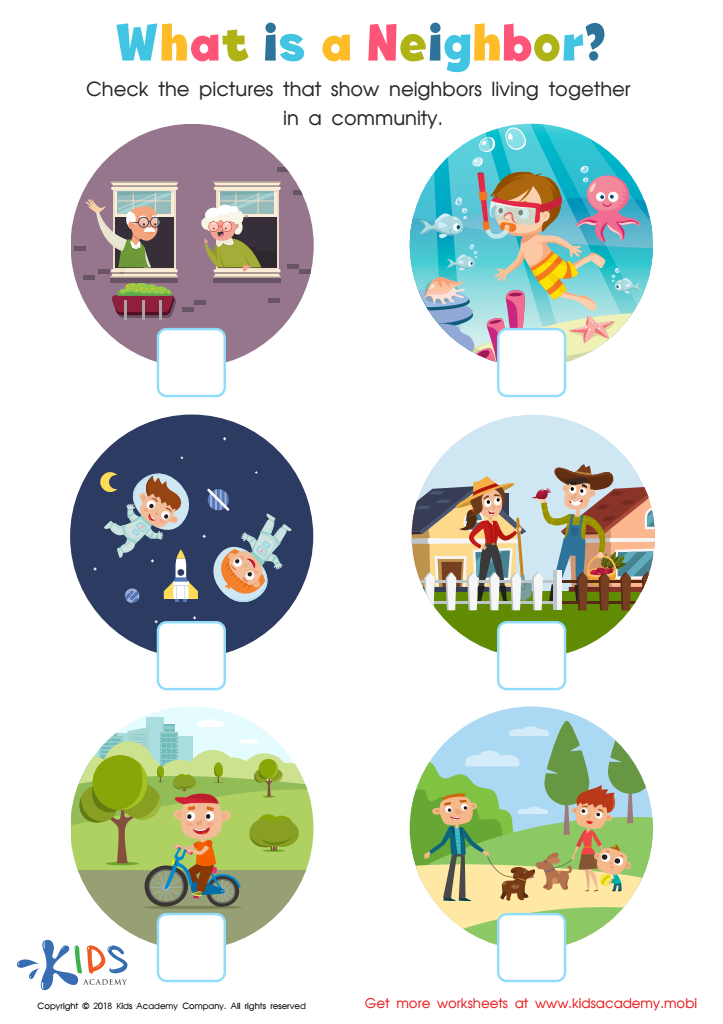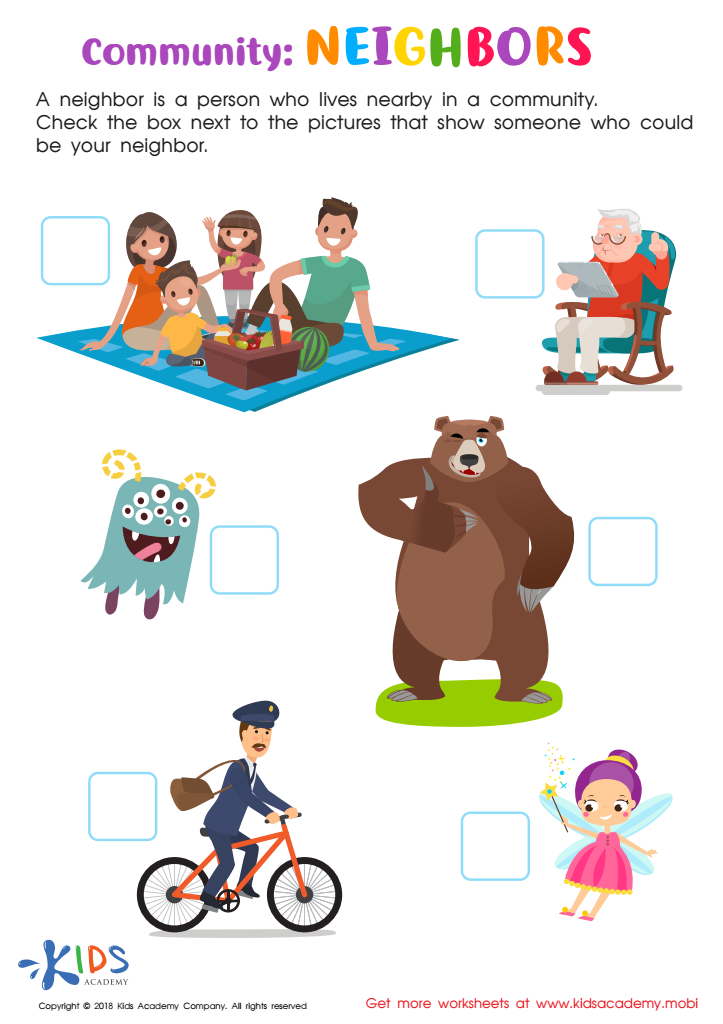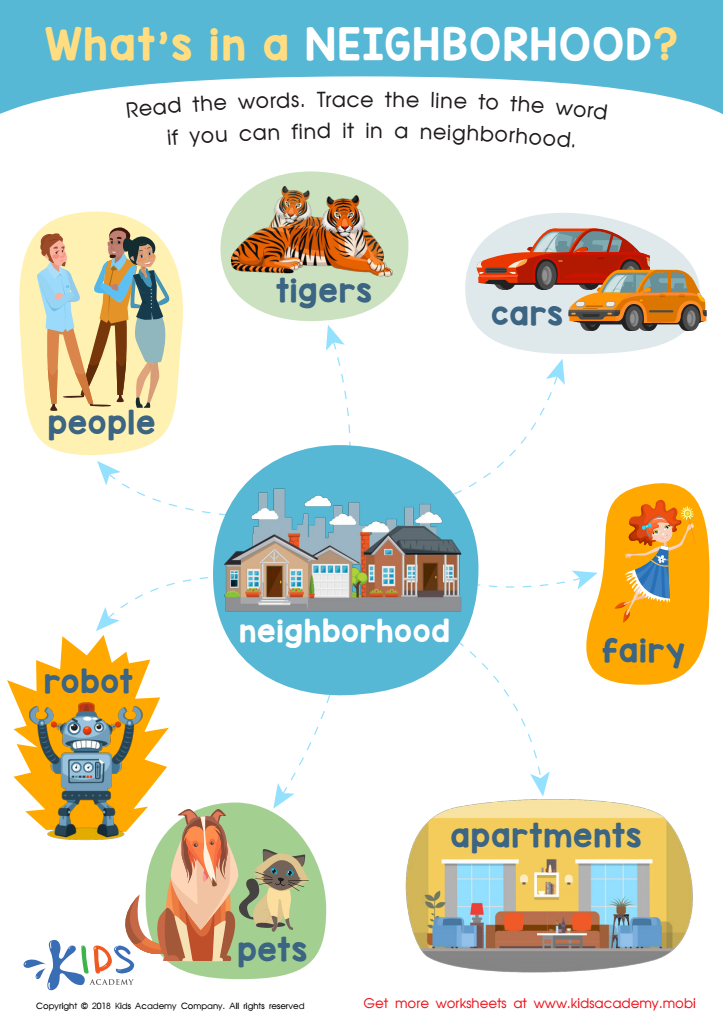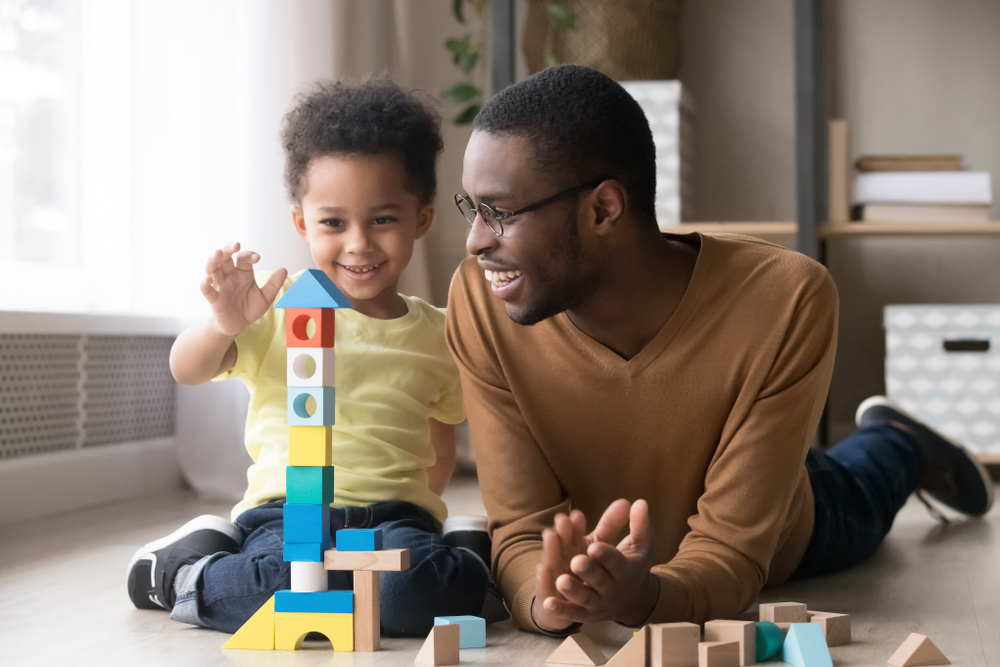Understanding communities Social Studies Worksheets for 6-Year-Olds
3 filtered results
-
From - To
Our "Understanding Communities Social Studies Worksheets for 6-Year-Olds" offer engaging and educational activities designed to teach young learners about communities and their importance. These worksheets from Kids Academy seamlessly combine fun puzzles, coloring tasks, and simple questionnaires to help children explore various community roles, services, and infrastructure. As they work through the exercises, they'll develop critical thinking, reading, and comprehension skills essential for social studies. Perfect for both classroom and home learning, these worksheets ensure foundational knowledge about the diverse aspects of communities, setting the stage for a successful educational journey. Explore today!


What is a neighbor Worksheet


Community: Neighbors Worksheet


What's in a Neighborhood? Worksheet
Understanding communities in social studies for 6-year-olds is immensely important for several reasons. Firstly, children at this age are beginning to expand their awareness beyond their immediate family and friends. Learning about communities helps them comprehend how societies function and how different roles contribute to the well-being of a collective group. This foundational knowledge is crucial in fostering a sense of belonging and responsibility—key aspects of social development.
Secondly, engaging with communities in social studies aids in developing empathy and respect for diversity. Young children learn to appreciate that people come from different backgrounds, cultures, and traditions. By understanding these differences early on, they can grow into respectful and open-minded individuals, qualities that are indispensable in our globalized world.
Lastly, investigating community dynamics—such as cooperation, rules, and problem-solving—equips 6-year-olds with important life skills. Through stories, activities, and interactive lessons, children learn about governance, decision-making, and the importance of contributing positively to society. This education lays the groundwork for informed and active citizenship as they grow older.
In summary, early social studies education centered around understanding communities plays a pivotal role in helping children develop into empathetic, responsible, and informed members of society, bridging their personal experiences with the wider world they inhabit.

 Assign to My Students
Assign to My Students
















